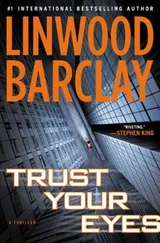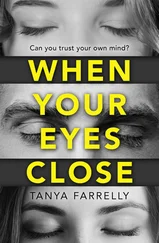My wedding. It surprised me how pleased I was to hear my mother, amid her sad talk, allude to my wedding as something inevitable. It had been an abstraction, but maybe I wanted one more than I knew or wanted the kind of relationship in which a wedding was even a possibility. I certainly didn’t have that with Ben Driggs Stern.
“When your father told me what happened with Lee. . I think about these things. About myself. About you. About Lee. I do think she could use a friend right now. But maybe that friend isn’t you.”
Genevieve came into the kitchen then and was halfway to the sink before she saw us sitting in the breakfast nook, staring at her like a zoo gorilla. She belonged to a different species. Even in refilling a glass of water by the sink she acted with a shining confidence here in her boyfriend’s mother’s house. No one had ever turned her down or made her feel undeserving. It would be only a matter of time before she would be hurt and humbled, perhaps repeatedly, before the world stopped being a place of promise. Obnoxious as I found her to be, I wished for a moment that she could stay the way she was, unharmed and unknowing. It vanished when she summoned a smile for us, the kind of wan, blinking smile you see on someone actively suffering a fool.
“Sweetie,” said my mother, “there’s a pitcher in the fridge that’s cold.”
“Oh, thanks, but my body metabolizes room temp better.”
“Of course. Whatever you like.”
“Thank you, Natalie.”
Ms. Feld. Call her Ms. Feld. Your shit stinks too, Genevieve. And could you maybe offer to wash a fucking pan or something?
“Aaron is so young,” said my mother, when Genevieve left.
“He’s always seemed old to me. I usually end up feeling immature around him.”
“I think I know what you mean. But he’s still such a boy in certain ways. I’m not too worried about Genevieve, I’m more worried about whoever comes after her. Ben Driggs Stern. Do you always use his full name like that?”
“Yes. Unfortunately.”
“Poor kid.”
“Me? Or Ben Driggs Stern?”
She laughed and for an instant, she became Natalie to me again, not my mom, and I wanted her to have run off with whoever it was who had presented her with an opportunity all those years ago.
The security light by the kitchen door clicked on, and my mother stood to see who was knocking on the glass pane. Lee. She came in from the cold, huddled in her parka, her eyelashes wet, her eyes bloodshot.
“Could I talk to you?” she asked my mother and then gave me a look I’d once seen on a wounded doe that had wandered from the local deer sanctuary into town. Animal Control eventually shot the bleeding creature in a parking lot behind a multiplex. My mother ushered Lee in and took her coat.
I went up to my old room so I couldn’t even try to listen. There were now a few plastic storage containers stacked by the desk and at the foot of the bed. But above the dresser was still the Bikini Kill poster I had taped to the wall, a postcard of Garfield eating lasagna, and a picture of Helena Bonham Carter I put up during my A Room with a View period. All of it was from a time before Lee, which didn’t quite compute. My life always already had her in it. Years later, I would experience the same disbelief, the same ontological whiplash with my son. The always already.
The knock at my door came from Lee, who held her packed bag at her side. She had insisted on calling a cab to get her to the bus station, even though my mother had offered to drive. She was so sorry. She felt so alone and she missed me, but I had Ben now, and she understood that changed things. She didn’t know what else to say. I wanted to tell her that I didn’t have Ben, not in any way that meant I no longer needed her. But the last thing I wanted just then was to need her.
My mother later told me she had sat Lee down, fixed them each a cup of tea, and tried to get across that if she was upset, it wasn’t so much on her own behalf, but on behalf of her children. On behalf of Lee, too. Natalie, ever the anti-Linda. If it had been reversed, what would Linda have said to me? But it could never have been reversed.
I wouldn’t go so far as to call it a bright spot, but I have to admit to a certain satisfaction that nobody, including Aaron, ever told Genevieve what happened, though she saw the taxi pull up, saw Lee get in. We closed ranks because we still had loyalties and we still knew where they lay.
Lee later apologized to me again, and I told her I forgave her. I really thought, at the time, that I had. That the moment with my father was, after all, a cry for help. But I never truly forgave her for damaging our friendship or for hurting me. I never let myself believe that’s what she’d done.
A WELL-GROOMED MANin a chambray shirt, dark jeans, and work boots greeted us at the door of the Carnahans’ house, which sat on a tiny peninsula jutting out into the sea.
“He’s got servants,” I whispered to Lee.
“Yes,” she replied, annoyed with my astonishment. “They’re not servants. They’re personal assistants.” I forgot they’d had various helpers when Lee was growing up.
Carnahan appeared. “Let’s go have a look at dear old Dad, y’all,” he said.
We followed the Carnahans through airy rooms, all glass and white walls, to a rickety back staircase they hadn’t yet gotten around to renovating and maybe never would.
“It reminds me of a mental institution,” Kara said. “But in a good way. Know what I mean?”
I nodded. Possibly Kara was alluding to the deep Freudian scratches in the wooden banister and dark paneling along the wall. It wouldn’t have surprised me to reach the top and find an old nursery covered in yellow wallpaper. Instead, below a skylight was a hallway freshly painted in a soft soothing gray, leading into a rectangular observatory. Wide windows opened onto the ocean and the sky, and a thin shade made of some UV filtering fiber cast the room in a shadowy light.
A series of black-and-white portraits lined the wall. Most of the well-known photos of Jesse, the ones that had graced his albums and been reproduced many times over, had been taken by Linda, candids she snapped with her old Brownie. Their intimate home-movie feel welcomed you into a rarefied world: Jesse in the Chateau Marmont; out by his Corvette in the desert; leaning on a fence at a scrub-covered ranch in Topanga. David Haseltine’s images had intimacy too, but not one that extended to the viewer. In their ongoing interiority was a vivid psychology that bled through the surface of the image, but nobody else could be a part of it.
In one image, against a backdrop of flocked, floral wallpaper, Jesse stared directly ahead, daring Haseltine to catch the combination of boyish sweetness and lock-up-your-daughters sexuality. This simultaneous vulnerability and confidence must have made it hard to say no to him. But the photograph also crystallized that look, formalized it, made it into a mask, behind which you could almost glimpse Jesse laughing, quietly and a little viciously, at all of it.
Next was a shot of Marion looking at Jesse as Jesse cast his gaze down toward a dusty beam of light coming through the window of another room in Flintwick’s lake house. They looked so contemporary — Jesse in his cardigan and T-shirt and Marion in her white button-down and light blue trouser-like jeans. On a side table next to Marion I noticed a glass bottle of water and a china cup placed on a saucer. The small touch of finery surprised me, evoking a loose luxuriance. Was that saucer Marion’s doing? Or was it Jesse’s? His etiquette, his Southern ways. The stillness of the picture was appealing, though a little blank, until I saw the picture to the other side of it, the moment just after, as Jesse looked straight at the camera. It hummed with the tension of him not looking back at Marion. Marion was looking ahead at Haseltine’s lens too. Their expressions: Is this what you wanted? As though both Jesse and Marion knew in advance what Haseltine’s frame was going to reveal here: a couple that wouldn’t last.
Читать дальше












